Stop taking fish oil pills
Nov 29, 2022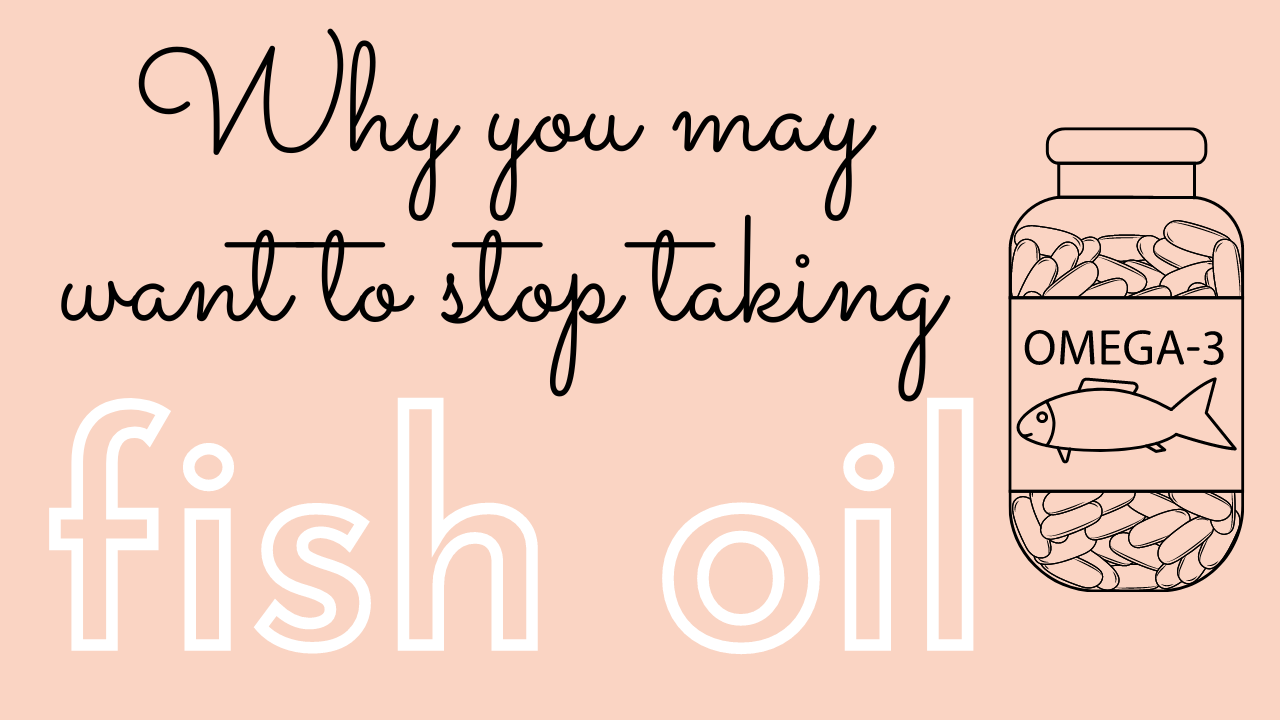
Let's talk about why you should stop taking those fish oil pills.
But first, a little back story.
So I am someone that is not good at taking supplements. Meaning I often forget to take them, or leave them on the counter or in my pockets.
Back in 2015 when Sarah and I listened to more 'mainstream' nutrition advice and we took fish oil pills, daily.
Well, I have a very vivid memory of pulling a sweatshirt out of the dryer and it reeking like rancid fish. The smell was *so strong*.
I proceeded to pull every article of clothing out of the washer and they all smelled like dead fish.

I then realized that I left my fish oil pills in that sweatshirt pocket the day prior and forgot to take them.
I thankfully stopped taking fish oil pills a year later.
But this was definitely a teaching moment - fish oil pills are high in Omega 3 Polyunsaturated Fatty Acids (PUFAs) and oxidize and go rancid under heat, light and oxygen.
Let's briefly review WHY.
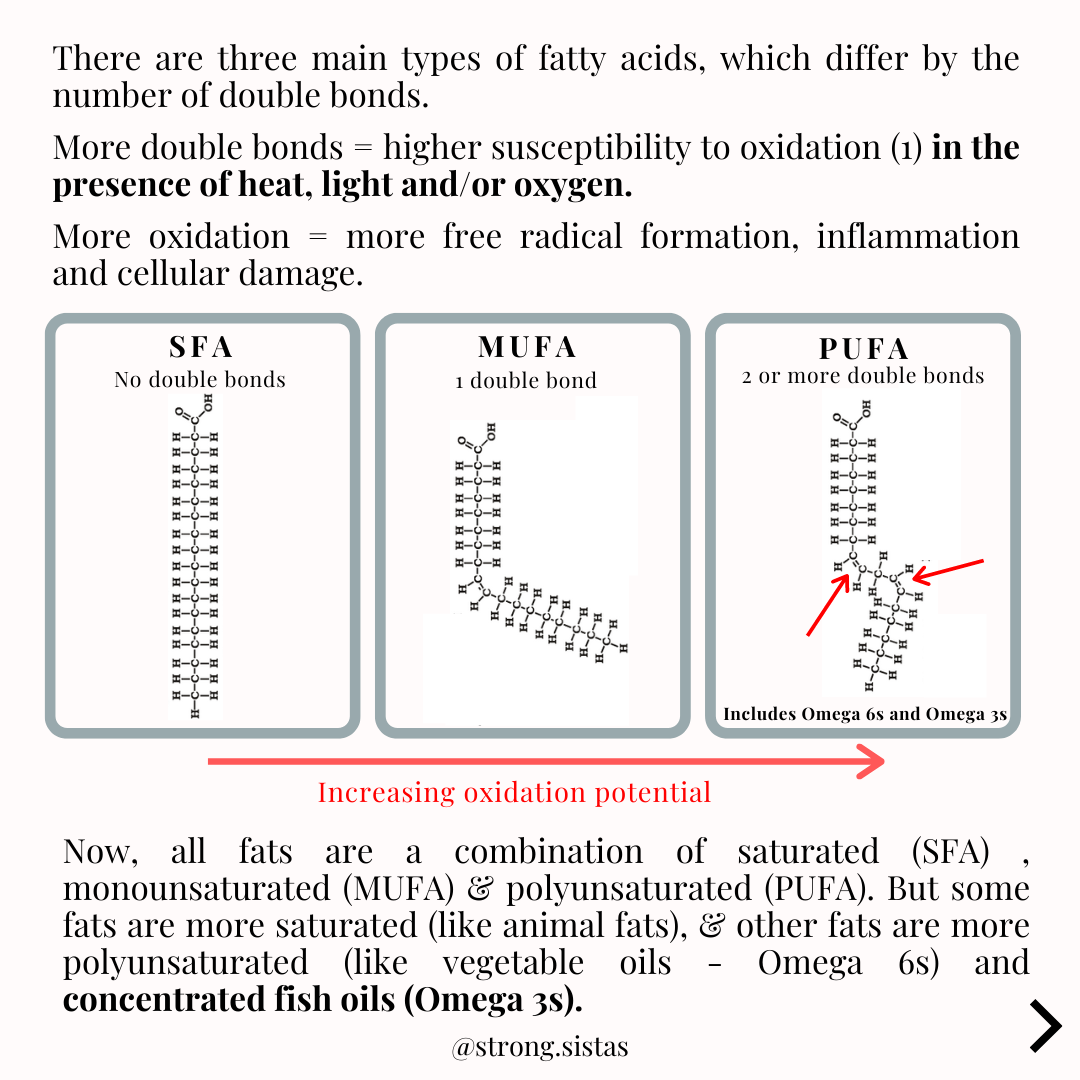
PUFAs, especially Omega 3s, have been all the rage these past 10+ years and are viewed as health-promoting.
But when you dig into the literature and scientific studies, it is very clear that PUFAs are unstable molecules prone to oxidation.
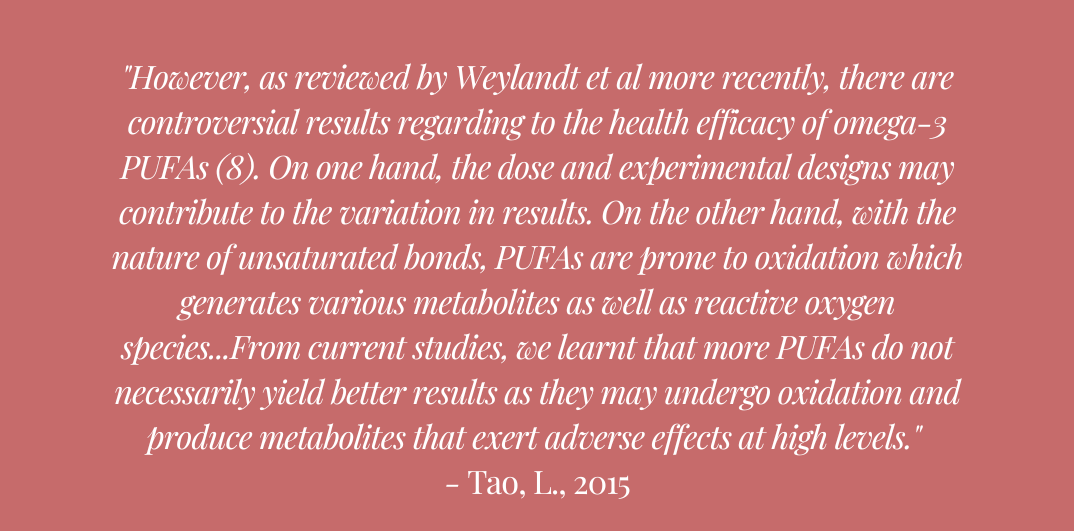
Supplement companies don't want us to know this information.

Some companies will claim that their storage technology is superior, and that their fish oil pills are not oxidized.
Well, unfortunately, it has recently been shown in the literature that PUFAs oxidize during our digestion.

Let's quickly look at two interesting studies.
In this first study, the authors analyzed oxidation before and after digestion of 4 groups. The results are astonishing! Adding PUFAs to the beef increased the level of lipid oxidation before and after digestion.
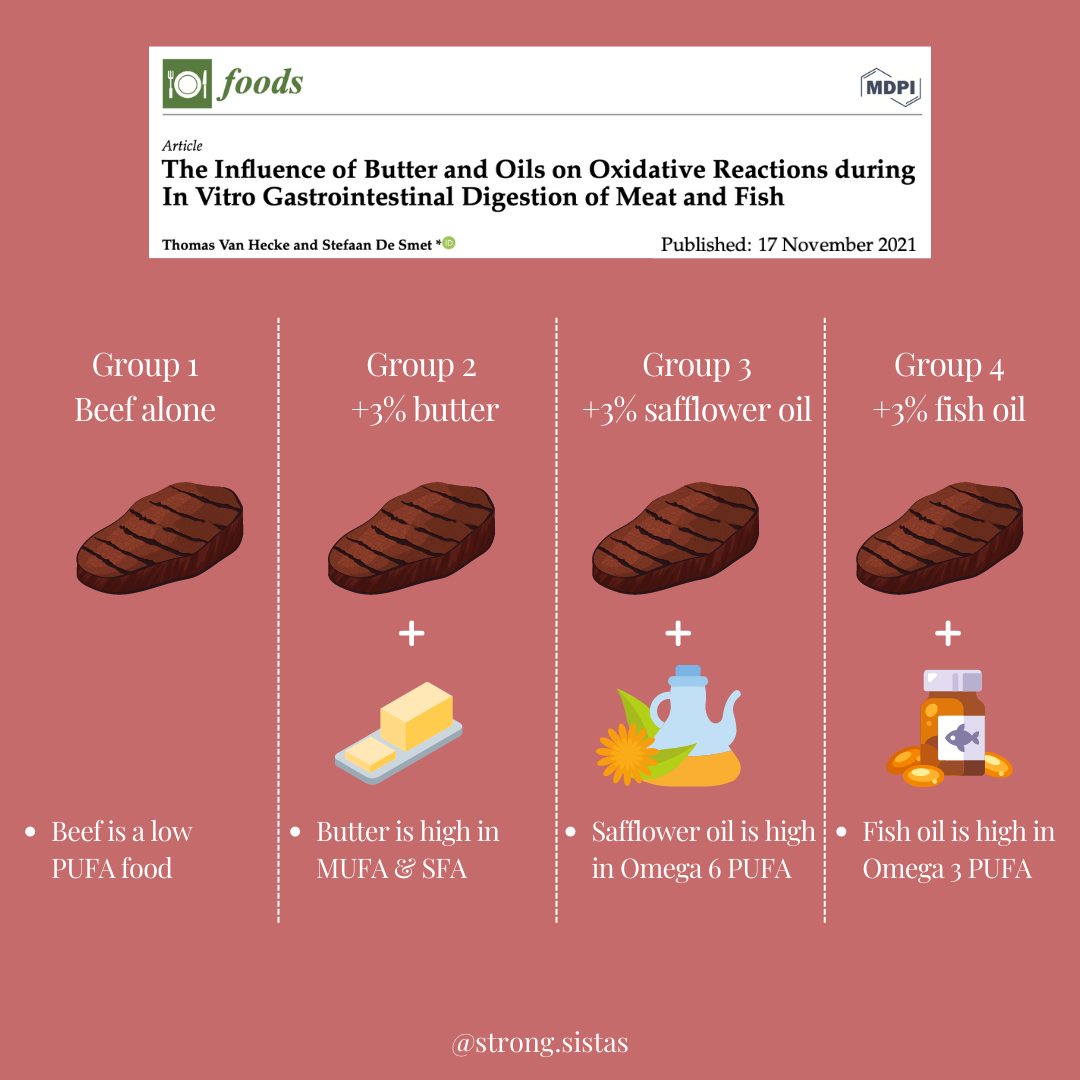
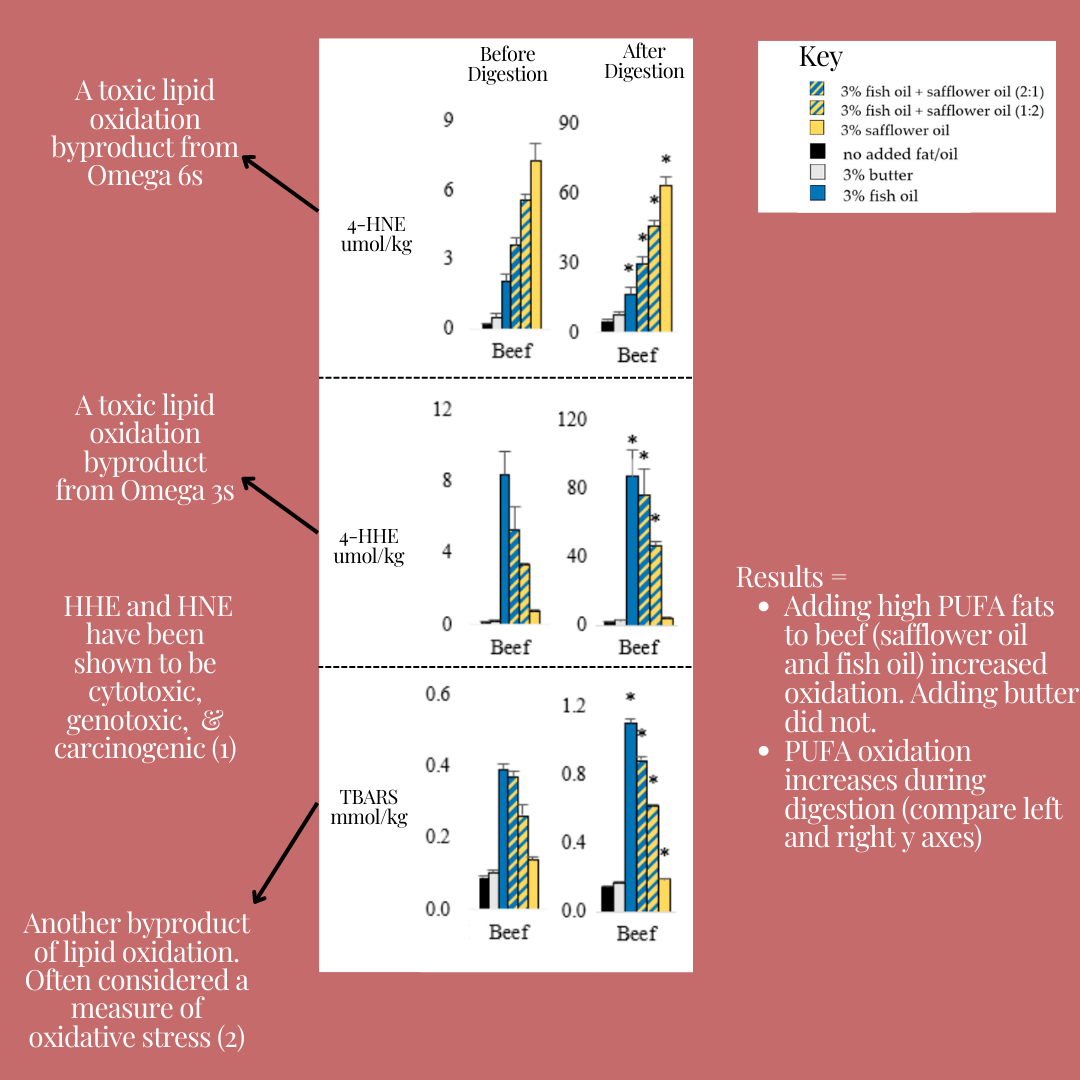
And another study:

What I get out of these studies - you can both save money and improve your health by not taking fish oil pills or Omega 3 supplements. Excessive use of these pills can lead to high levels of oxidation and potential long term internal damage.
Wait but aren't Omega 3s anti-inflammatory??
Well, no. Omega 3's are anti-inflammatory immunosuppressive.
While there may be some short term 'anti-inflammatory' benefits, they come with long term negative health outcomes, including:
- Internal damage due to the production of toxic compounds from oxidation
- Immunosuppression
- Down regulation of metabolism
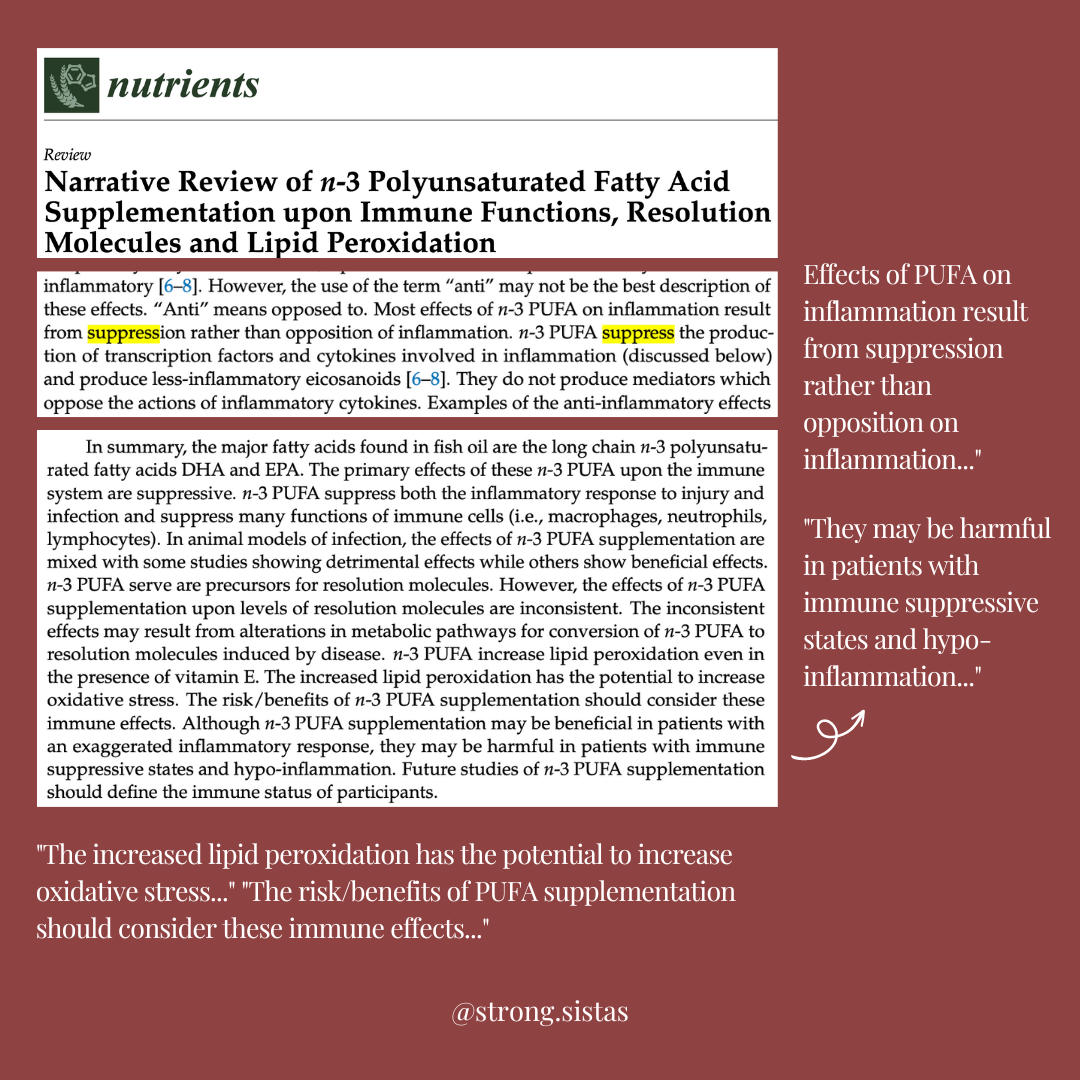
Want more of this evidence-based nutrition? Want some assistance navigating the conflicting health and nutrition world? Information on what supplements are BS vs. helpful?
We are here to help - check out our course, Rooted in Resilience.
You can enroll in the full course bundle, or enroll in the individual modules
1. Nutrition
2. Exercise
3. Lifestyle & Environment
TL;DR
- When considering fish oil supplementation, we must think about long term physiological consequences, not just short term symptom suppression.
- Complete avoidance of Omega-3s in a healthy diet is not possible -- all the superfoods (eggs, liver, beef, milk, oysters, etc.) contain some amount of them
- However, one does not need to go out of his or her way to add more (through, for ex, fish oils or excessive fatty fish consumption) -- more is not better
- If you consume animal fats, you are getting plenty of Omega-3s in your diet, thus the need to supplement additional is unnecessary and without proven benefits (if you aren't eating animal fats, you probably should be)
- Making healthier food choices is significantly better than taking a fish oil supplement to try to 'fix' things -- all this does is suppress what's going on [the inflammation] & promote long term damage, instead of addressing the root cause and supporting the reduction of the inflammatory response in its entiretity


